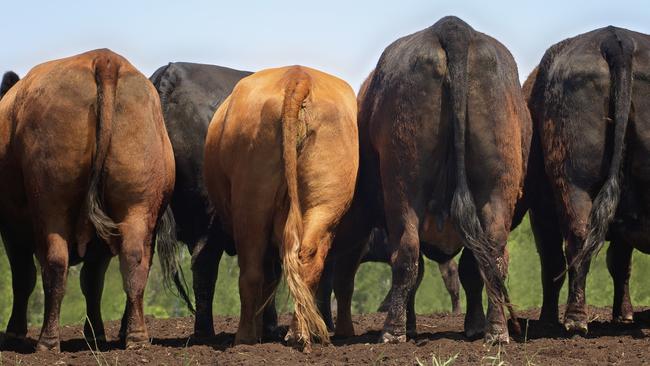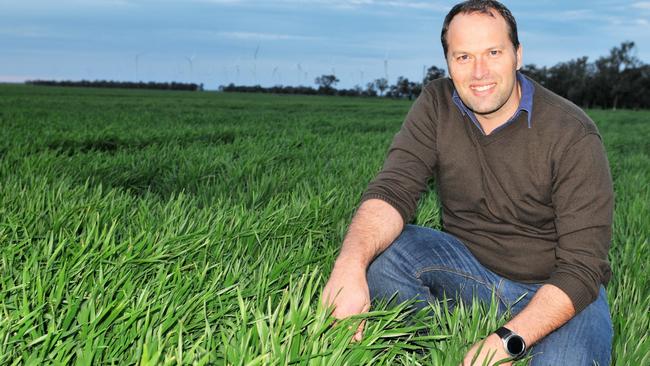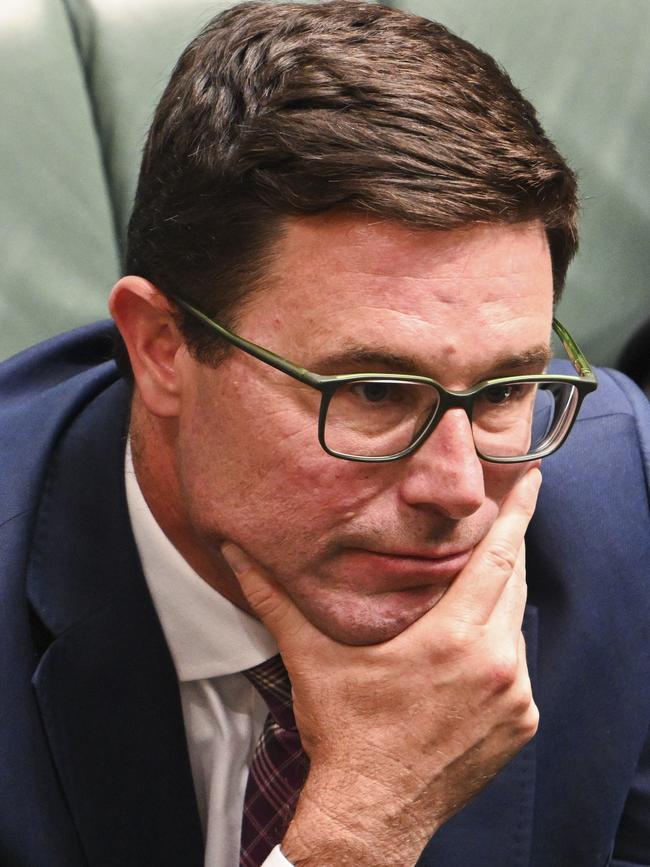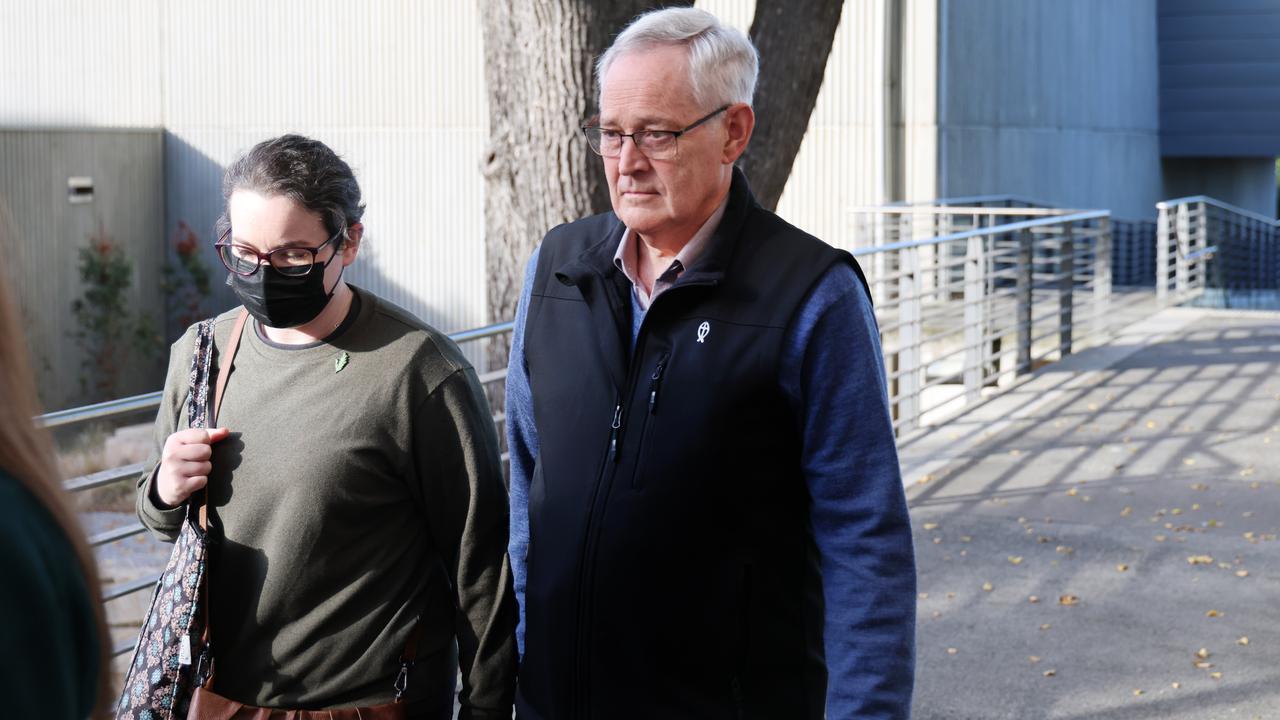Farmers say Labor’s mandatory climate disclosure regime will be an ‘absolute disaster’, Coalition vow to fight for exemptions
The National Farmers’ Federation lists several major concerns with the proposal, including no carve outs for agriculture in reporting scope 3 emissions.

Farmers have labelled Labor’s mandatory requirement for companies to disclose climate risks an “absolute disaster” and say it must be significantly delayed or exempt agriculture from reporting on indirect greenhouse gas emissions, setting up another political brawl over Australia’s transition to net zero.
Ahead of a looming parliamentary fight over mandatory climate disclosure – a key plank of the Albanese government’s climate policy – opposition Treasury spokesman Angus Taylor warned of a “substantial increase” in the regulatory burden on business, and Nationals leader David Littleproud demanded a carve-out for farmers.
The National Farmers Federation noted compliance with the proposed regimen would exceed $1m for affected entities and annual compliance costs would exceed $500,000, before decreasing over time.
“It would be an absolute disaster for us to proceed with the current settings,” NFF president David Jochinke said.

“Not only would it make compliance impossible even for the best farmers, it would essentially wrongfoot almost every producer in the nation, effectively chaining us to a system that would be unproductive.”
While the scheme captures businesses with a turnover of $50m or more, there are concerns farmers – who supply the big supermarkets and other large companies that will have to make climate disclosures under the program – will be affected by scope 3 reporting requirements. Scope 3 includes emissions along the supply chain, which are not generated directly by a company within its fence line or through its electricity consumption.
Under the proposed scheme, large companies and asset managers will be required to reveal climate-related risks, risk-management strategies and emissions targets to investors in a bid to increase transparency and reduce “greenwashing” – false or misleading environmental and sustainability claims.
Companies with $500m in revenue would have to report climate matters to investors from July 1, though key stakeholders are pushing for this to be delayed by at least six to 12 months.
Smaller companies with a turnover of $200m would start in 2026, and those with $50m and 100 or more employees in 2027.
Asset owners with more than $5bn under management will be required to begin reporting from July 2026.

The NFF conceded the bulk of farmers would be affected via scope 3 reporting.
In its submission to the government’s exposure draft consultation, the NFF said the updated legislation “does resemble an overall improvement” but a number of concerns remained about one of the biggest changes to corporate reporting in a generation. They included no scope 3 reporting exemption for agricultural businesses, a “significant” regulatory burden, and the capacity for the scheme to capture many more entities seeking data and information from the supply chain.
The NFF called for a scope 3 reporting date no earlier than 2035, whereas the government is considering a one-year lag.
Mr Jochinke said farmers had very little control over the emissions produced in many circumstances, such as through the fertiliser or diesel used on their property, because there was “no flexibility” to choose alternatives of similar value or impact.
“This is against the backdrop of cost-of-living and cost-of-food (crisis),” he said.
“The current way fresh food is operating, it’s absolutely knife-edge for a lot of producers and Australian agriculture, which is one of the least subsidised industries in the world.
“We will have to look to import food from countries with far less environmental credentials.
“That would be a direct consequence of the policies exactly like we’re talking about. The margin just simply isn’t there to incorporate the amount of change that’s required, let alone sustain it.”
Mr Taylor said businesses were already “drowning” in green and red tape, declaring the opposition had “deep concerns” about the mandatory disclosure scheme’s potential imposts on smaller businesses, primary industries and manufacturers, particularly those that contracted with larger businesses.
“The last thing the business sector needs at this time, with rising energy costs, bad workplace laws, and prolonged inflationary pressures is the government implementing more red tape that kills productivity,” he said.


Mr Littleproud added: “In the absence of any scientific methodology, particularly of abating emissions like methane, and in the middle of a cost-of-living crisis, it would make sense to carve agriculture out of this legislation to protect farmers and consumers of extra costs.”
Treasurer Jim Chalmers’ spokesman said the government was consulting on draft legislation that would help companies and investors maximise economic opportunities in the shift to cheaper, cleaner and more reliable energy, and to manage climate risks.
“Our changes, which will be phased in over time, will give investors the clarity and certainty they need to invest, creating more jobs and opportunities for people in more parts of the country,” he said.
“We always listen respectfully to stakeholders when they engage with us - that’s an important feature of the way we govern and it’s the reason why we’re currently consulting on this legislation.”
Under the government’s plan, small and medium enterprises, registered charities or those with reporting exemptions from the corporate regulator will not be required to make climate-related disclosures.
Australian Industry Group’s climate change and energy director Tennant Reed said it was not crazy to think the scope 3 reporting requirements would end up having some affect up and down the supply chain of large companies that must make disclosures.
Scope 3 reporting was “currently the fuzziest part of how the whole thing will work”.
“Nobody wants to spend lots of time and effort producing and chasing every last rabbit down its hole that no investor will ever pay the slightest attention to. Some bits of scope 3, they (investors) absolutely will,” Mr Reed said.
“What’s important is not what do the words in the standard and legislation say but I think the fear the farmers have is how are supermarkets going to interpret that? Will they take a conservative approach and say ‘we need to know every last bit of emissions and put a lot of paperwork on those suppliers?’
“My best judgment from what I’ve seen so far is the emerging standard, which is still under consultation, is doing a reasonable job on the materiality front and it should be okay once people are used to it.”
Mr Reed said “a lot of upskilling” will be needed so smaller businesses are able to report under the scheme appropriately, agreeing a 12-month delay would allow companies to do the necessary work to comply with the requirements.
“In 10 years time I’m very confident this will all be fine. But is it going to be fine on 1 July this year or 1 January next year? That’s going to be a bumpier time for all those who are new to it,” he said.
Investor Group on Climate Change managing director Erwin Jackson said the likely delay to the start of reporting was unfortunate but also fully understandable, given the need to consult with a range of stakeholders and the reality of federal parliament’s schedule.
“Critically, companies need to make the most of this extra time to produce quality disclosures. This is not the time to take the foot off the pedal,” he said. “Mandatory disclosure will be vital to Australia as a magnet for global capital. Global markets are moving in this direction, with the full support of investors.”
Mr Jackson said a flaw in the proposed standard was it didn’t require companies to test and disclose how their activities held up under more extreme weather impacts like the multi-billion-dollar floods and bushfires in recent years.
“Even if warming is limited to 1.5C, the costs of climate damages to the global economy are (conservatively) five times higher than the cost of reducing emissions and around double the cost of other global events like Covid-19. Building climate damages into scenario analysis could save companies and taxpayers billions of dollars from foreseeable climate impacts.”







To join the conversation, please log in. Don't have an account? Register
Join the conversation, you are commenting as Logout